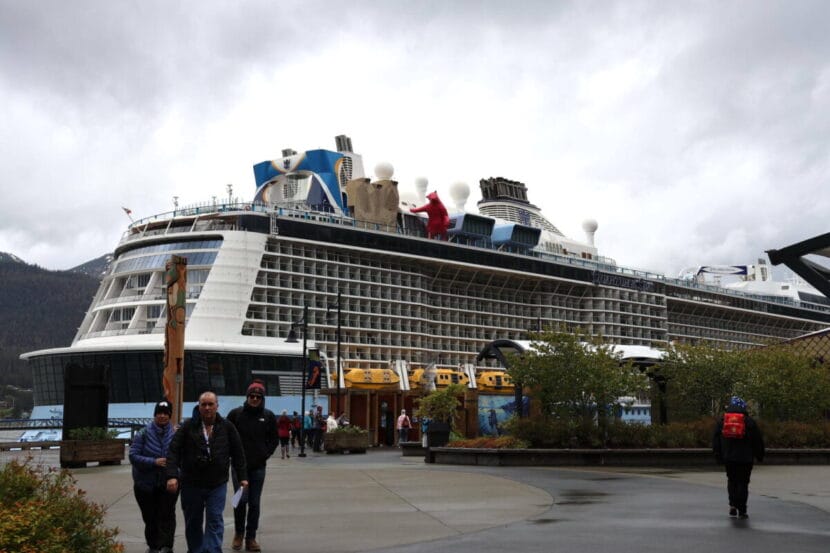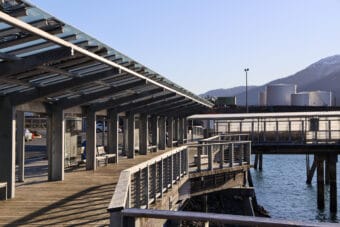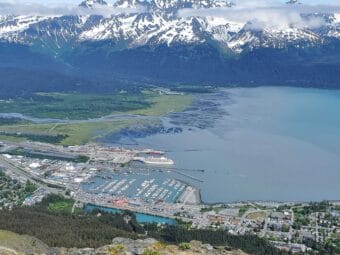
Each year, the city collects a fee from each cruise ship passenger that comes to town. Those fees — expected to add up to more than $20 million this year — fund projects that serve visitors and ease the impacts of tourism.
But this year, some of those projects could be in jeopardy. Last week, cruise line officials sent a letter to the city saying that nine of its proposed projects — including public Wi-Fi downtown and increased bus service to the Mendenhall Valley — don’t meet the terms of a 2019 settlement agreement that determines what the fees can pay for.
The letter from Cruise Lines International Association Alaska, known as CLIA Alaska, said those projects “do not meet the necessary criteria set forth by either the law or the Settlement Agreement.”
But, at an Assembly finance meeting this weekend, Juneau Tourism Manager Alix Pierce said she recommends the Assembly move forward with funding the projects despite the objections.
“We talk a lot about collaboration with CLIA, and sometimes you need to have hard discussions. This is one of them,” she said. “But this feedback came late. It came outside of the established process, and I would recommend that the Assembly just move forward with its budget cycle.”
In 2019, Juneau and CLIA Alaska came to a settlement agreement after a three-year legal fight over marine passenger fees and how Juneau spends the money it collects from cruise ship passengers.
From that settlement, CLIA Alaska agreed to not to object to how the city spends the fee going forward, but both parties would meet annually to discuss those plans. And both parties also agreed to continue working together and to settle future disagreements outside of court.
Pierce said CLIA Alaska’s recent letter was sent far too late in the process outlined in the settlement agreement. She said the objections did not come up during the city’s annual meeting with the group earlier this year — and that the city had already built its proposed budget assuming that these projects could be funded.
“CLIA’s aware of that timeline,” Pierce said. “And we had a meeting where we discussed the budget. And then, very late in the process, they came forward with this letter that does not follow the timeline of our process.”
The Assembly will have the final say about whether the projects will be put into its budget for next year. They could consider the objections made by CLIA Alaska and take the projects out if they want to.
City Manager Katie Koester said it’s possible that the group could pursue another lawsuit if the Assembly does go through with funding the projects. But she said she’s not concerned with that possibility yet.
CLIA Aalaska did not answer specific questions about their objections. But in an emailed response, spokesperson Renee Reeve says she’s confident the organization and the city will come to a resolution.
Pierce said she hopes to establish a better process with CLIA Alaska for next year. The Assembly will finalize its budget in the coming months.


